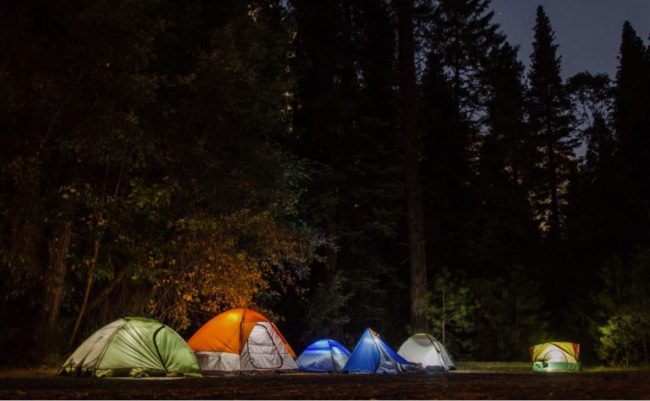
Most ardent nature lovers can’t imagine not camping, even if they now have a baby in their charge. Despite the challenges that this scenario presents, it is possible to safely camp with a baby in tow and still have fun. The following four guidelines have been put together to guide you as you prepare for your camping trip.
Use Electric Coolers
If you can simplify your baby’s diet during your camping trips, you’ll find that your trip goes along much more smoothly. Even when the child is breastfeeding, many mothers prefer to pump the milk needed ahead of time to ensure that there is always some reserved for any potential dry spells. To accomplish this, try packing along some small electric coolers to keep your baby’s food and formula (if you use it) from spoiling. Most camper trailers have outlets for this and other purposes, allowing you to plug in a portable electric cooler and other appliances. There are also many cooler options that can be plugged into car ports or that are rechargeable, allowing you to keep the baby’s bottles at a regulated temperature instead of just packing it in with some ice.
Changing Your Baby
No doubt about it. Camping really challenges your ability to change your baby’s diaper. Both cloth and disposable diapers present their share of problems. If you’re in a wilderness area, you must pack everything out, including the diapers. A good compromise for those who want the convenience of disposables but the environmental friendliness of cloth can try gDiapers. These are constructed of a compostable interior and a cloth diaper cover. They will keep your baby clean, dry, and healthy, and allow you to pack out and throw away with much greater ease. Do not try to dispose of these diapers on the camp site, however, without knowing the laws and regulations surrounding waste disposal for that area.
Warding Off Mosquitoes and Other Bugs
Bug sprays and repellents aren’t generally recommended for babies who are younger than six months old. There are ways around the bug issue, however like getting your child clothes from Insect Shield. During the day, try dressing your baby in long pants and in shirts with long sleeves. At night, cover your baby’s carrier with mosquito netting or a light blanket to keep the bugs at bay. This can be easier when done in an enclosed and regulated space like a camper, but a large enough tent can suitably keep out bugs and pests during the night if you’re careful about what you let in. Remember, babies can’t swat the bugs away on their own, and their weakened immune systems can’t fight off the diseases that mosquitos carry, so it’s your job to keep them safe from that.
Keep Away From Campfire Smoke
Your campfire’s wood smoke contains some harmful chemicals, including benzene and formaldehyde. It puts off some fine particulate matter that causes respiratory problems, like a runny nose or even bronchitis. This isn’t terrible in the small amounts that we breathe in from being near a campfire, but a baby can’t just get up and move out of the path of the smoke the way you and I can. On top of that, their smaller lungs and respiratory systems are more susceptible to damage from sheer lack of oxygen in the smoky air. If you’re going to make a campfire, then be mindful of where the wind is blowing and be sure to move your baby accordingly so that they can breathe freely.
Babies are delicate and require a great deal of care, but that doesn’t mean you can’t still have fun. Take the time to plan ahead for your baby’s needs before you go camping. This way, you won’t have to sacrifice your wilderness get-away or your child’s health and safety to truly enjoy your summer.